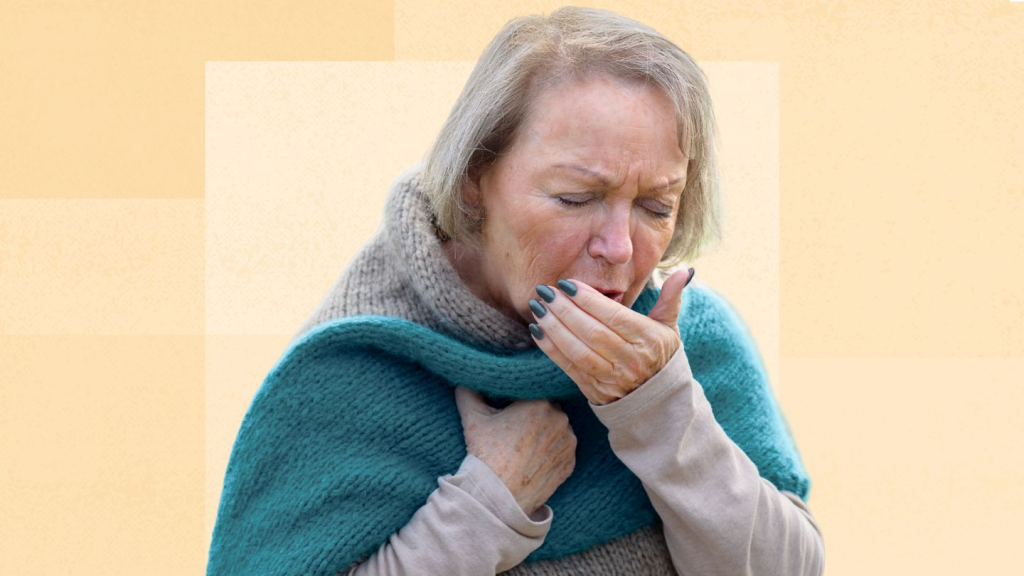Respiratory Syncytial Virus, commonly known as RSV, is a viral infection that has gained renewed attention due to its impact on multiple age groups, particularly the very young and older adults. While it is often associated with childhood illnesses, recent studies and healthcare data reveal its significant threat to adults over 60 and those with compromised immune systems.
Awareness of RSV’s symptoms, the populations it affects, and the measures to manage or prevent it is crucial, especially during its peak seasons.
The symptoms of RSV can resemble those of a common cold, making it deceptively easy to overlook. In its mild form, it may present as a runny nose, cough, and fever. However, as the infection progresses, it can cause severe complications, especially in vulnerable populations. Symptoms such as wheezing, difficulty breathing, and reduced oxygen levels are telltale signs of more severe cases. In infants, it can manifest as bronchiolitis, while in older adults, it may exacerbate pre-existing conditions like asthma, COPD, or heart disease, sometimes leading to hospitalization.

RSV’s impact extends beyond individual health; it poses a significant public health concern. Each year, millions of children under five are hospitalized due to RSV-related complications. Simultaneously, adults over 60 represent a growing segment of those severely affected.
The global burden of RSV in older adults is alarming, with over 160,000 hospitalizations annually due to complications such as pneumonia. These statistics emphasize the importance of widespread awareness and proactive measures to protect those at risk.
The good news is that advancements in medical science have paved the way for effective preventive strategies. In May 2023, the FDA approved two vaccines, Abrysvo and Arexvy, designed to protect older adults against RSV.
These vaccines represent a significant breakthrough, providing a layer of defense that was previously unavailable. Health officials recommend vaccination for older adults and other at-risk groups as a preventive measure. Additionally, antiviral medications are being developed to treat RSV infections, offering hope for better management of severe cases in the near future.

Preventing RSV infections goes beyond vaccination. Simple hygiene practices, such as regular handwashing, avoiding close contact with sick individuals, and disinfecting commonly touched surfaces, play a vital role.
During RSV season, which typically peaks in the late fall to early spring, these measures are particularly critical. For parents and caregivers of young children, minimizing exposure to crowded settings can reduce the risk of infection. In healthcare settings, protective measures such as masks and isolation for infected patients are essential to controlling outbreaks.
Raising awareness about RSV is equally vital. Many people are unaware of the virus’s impact, particularly its potential severity in older adults. Public health campaigns, educational materials, and media coverage are instrumental in informing the public. By increasing awareness, communities can encourage vaccination uptake, promote preventive measures, and reduce the stigma associated with seeking medical care for RSV symptoms. Healthcare providers play a pivotal role in this effort by educating patients and families about the importance of early diagnosis and intervention.
For those already affected by RSV, supportive care is often the first line of treatment. In mild cases, rest, hydration, and over-the-counter medications to manage symptoms like fever and congestion are typically sufficient.
However, severe cases may require hospitalization, where oxygen therapy or mechanical ventilation is provided. Early medical intervention can significantly improve outcomes, particularly for high-risk patients such as infants, older adults, and individuals with chronic illnesses.

The ongoing research into RSV highlights its complexity and the challenges in combating it effectively. Scientists are exploring the long-term effects of RSV, particularly in older adults who experience repeated infections. Chronic respiratory issues, weakened immune responses, and increased susceptibility to other illnesses are areas of concern that underline the need for continued research and innovation in RSV prevention and treatment.
In conclusion, RSV is a multifaceted public health challenge that requires attention across age groups. The symptoms, though seemingly mild at first, can escalate into severe complications, particularly for vulnerable populations. Awareness, vaccination, and hygiene are the pillars of prevention, while early intervention and supportive care are critical for managing infections.
As we continue to learn more about RSV and develop better tools to combat it, the importance of collective action cannot be overstated. Everyone has a role to play, from individuals practicing good hygiene to healthcare providers championing preventive measures, in reducing the impact of RSV on our communities.
Thank you for being part of this community. If you are passionate about driving change through youth empowerment, and workshops, send us an email to info@insidesuccessnigeria.com. Find more related articles on our website. Kindly subscribe to our website and follow us on our Instagram @ insidesuccessnigeria to get more updates.



Leave a Reply